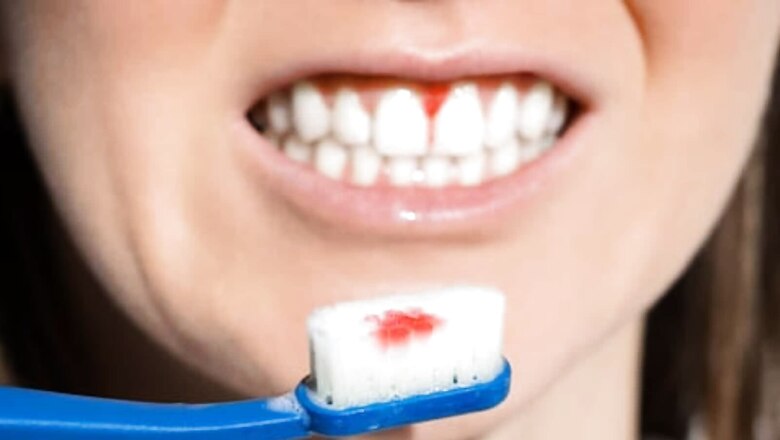
views
We have always been taught to brush our teeth before bed and clean them thoroughly in the morning. It keeps the teeth white and bright, prevents cavities, and helps keep other oral problems at bay. Not maintaining oral hygiene can give you bad breath, which no one wants. But, did you know that your oral health hygiene can also have an impact on your brain health? A new study shows that poor oral health can lead to a decline in brain health. It also suggests that early treatment can help reverse the effects.
According to a preliminary study, which will be presented at the International Stroke Conference 2023 of the American Stroke Association, maintaining good oral health may help boost brain health. The conference is scheduled to take place from February 8–10, 2023, in Dallas, US.
Research have shown those with oral health issues such as gum diseases and missing teeth and the ones who use improper brushing techniques or neglect plaque can be at a higher risk of stroke. Besides this, other studies have observed that oral health issues are associated with heart illnesses and conditions such as high blood pressure.
According to Cyprien Rivier, a postdoctoral fellow in neurology at the Yale School of Medicine in Connecticut, US, researchers were not able to determine if poor oral health was linked to brain health or the functional status of a person’s brain.
Rivier, who is also the author of the study, said, “Studying oral health is especially important because poor oral health happens frequently and is an easily modifiable risk factor—everyone can effectively improve their oral health with minimal time and financial investment.”
In this study, researchers examined the possible relationship between oral health and brain health in nearly 40,000 individuals. The subjects had no past history of stroke and had enrolled in the UK Biobank. Participants underwent screening for 105 genetic variations known to increase the likelihood of developing cavities, dentures, and missing teeth later in life. The impact of these genetic risk factors for poor oral health on brain health was also assessed. Additionally, MRI scans of the participants’ brains were used to look for indications of poor brain health.
The research revealed that silent cerebrovascular disease was more common in people who were missing teeth, had cavities in their teeth, or had dentures. It was also found that people who have genetically poor oral health had more damage to the fine architecture of the brain.
Highlighting the findings, Rivier said that bad oral health can result in a decline in brain health and thus one needs to be extra careful with oral hygiene. He added, “However, this study is preliminary, and more evidence needs to be gathered—ideally through clinical trials—to confirm improving oral health in the population will lead to brain health benefits”.
Read all the Latest Lifestyle News here


















Comments
0 comment